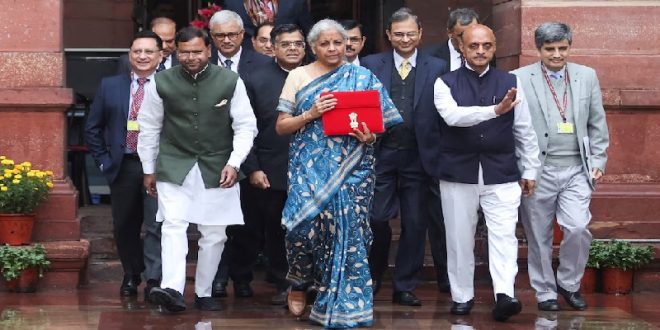14-07-2024
NEW DELHI: India plans to overhaul more than 200 state-run firms to make them more profitable, signaling a departure from Prime Minister Narendra Modi’s aggressive privatization, opens new tab program that has struggled to take off, government sources said.
 The program to privatize a major portion of India’s lumbering $600 billion state sector announced in 2021, had slowed ahead of the general election in April-May and now faces more resistance after Modi lost his majority in parliament and had to rely on coalition allies to return to office.
The program to privatize a major portion of India’s lumbering $600 billion state sector announced in 2021, had slowed ahead of the general election in April-May and now faces more resistance after Modi lost his majority in parliament and had to rely on coalition allies to return to office.
Expected to be unveiled as part of the annual budget on July 23 by Finance Minister Nirmala Sitharaman, the new plans include selling large parcels of underutilized land owned by these companies and monetization of other assets, said two officials who are aware of the policy. Some aspects are yet to be fine-tuned, they added.
The aim is to raise $24 billion in the current April-March fiscal year and re-invest the funds in the companies, while setting five-year performance and production targets for each company, instead of short-term targets.
The plans to overhaul state firms have not been reported previously.
The officials declined to be identified as they were not authorized to speak on confidential deliberations.
The finance ministry did not respond to requests for comment.
In an interim budget presented before the election, the government did not provide any figures on stake sales for the first time in more than a decade.
“The government is shifting focus from indiscriminate asset sales to enhancing intrinsic value of state-owned companies,” said one of the officials.
Among other plans, the government intends to introduce succession planning in majority-owned companies alongside a proposal to train 230,000 managers across firms to prepare them for senior roles, the officials said.
 Currently, the government appoints top executives in state-owned companies.
Currently, the government appoints top executives in state-owned companies.
The government is likely to implement a plan that includes training of managers, professional recruitment to company boards and incentives for high performance from the 2025/26 fiscal year, with the expectation that increased autonomy would make companies more competitive.
India aims to garner 500 billion rupees ($6 billion) through equity stake sales and proceeds from public assets in 2024/25, as privatization of state-run companies takes a backseat before general elections this summer.
Starting this year, the government has widened this stake sale category of receipts to include proceeds from public assets along with equity sales.
The government slashed the stake sale target for the current fiscal year that ends March 31 to 300 billion rupees from 510 billion rupees, as its biggest divestment planned for the year was delayed, budget documents released on Thursday showed.
The government has not kept any fixed target for divestment for next fiscal, said Tuhin Pandey, secretary in the government’s Department of Investment and Public Asset Management.
While the equity sales target for next fiscal year, starting April 1, is the lowest in 11 years, if achieved, the receipts would be the highest in five years.
India’s general elections are expected to be held by May. Outgoing governments typically avoid major policy decisions, such as stake sales, which are opposed by employees and unions.
Prime Minister Narendra Modi’s government has met its privatization and divestment targets only twice in the last decade, even though his government’s track record on stake sales has been better than that of any previous administration.
 Pressmediaofindia
Pressmediaofindia




